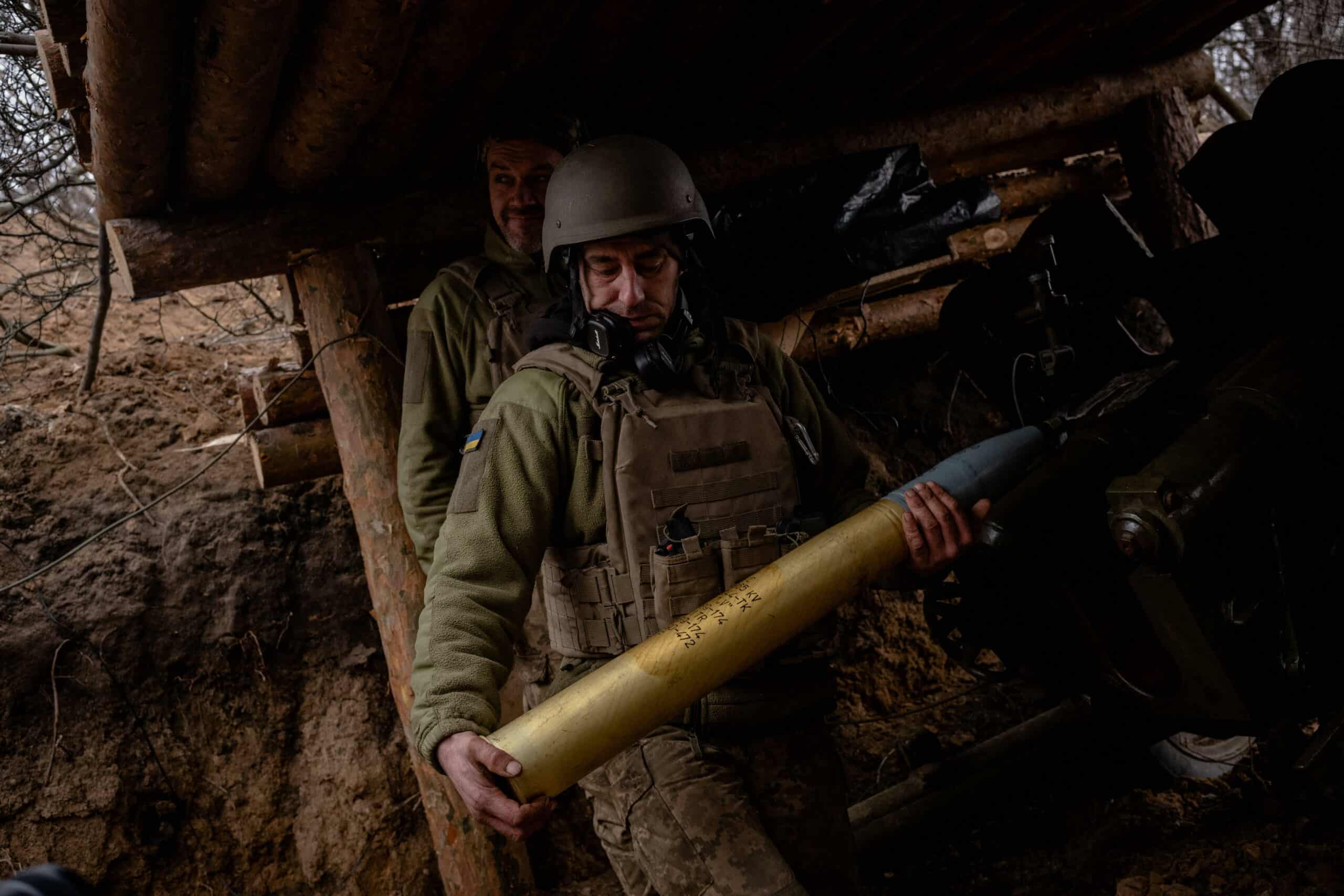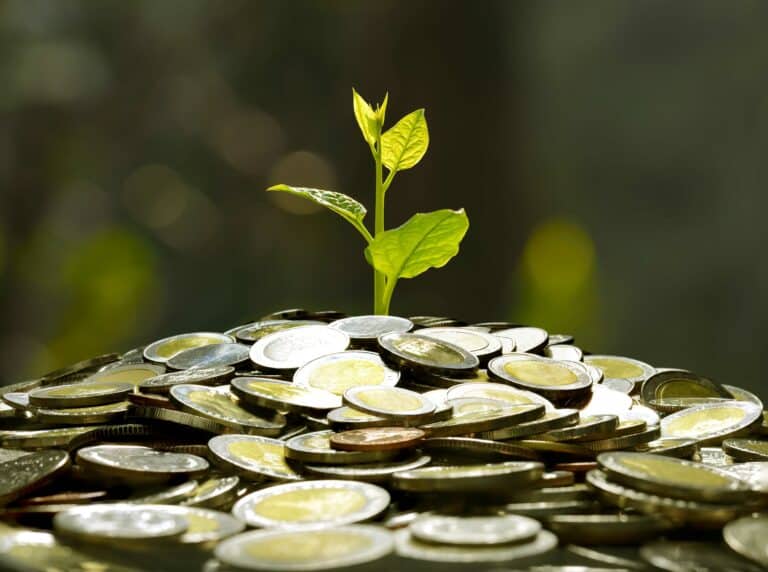Two years of war in Ukraine: where are we?
The war in Ukraine is facing military stalemate, but Poland appears to be winning the war of words.
Poland’s Foreign Minister Radoslaw Sikorski on February 25 – two years on from the start of the new phase of the war in Ukraine – hit back at claims by the Russian ambassador to the UN, Vasily Nebenzya, who had blamed the war on the West and accused the Western world of Russophobia. Sikorski also reaffirmed Poland’s support for international efforts to hold Russia accountable for its crimes in Ukraine, news outlets reported.
Speaking at a meeting of the UN Security Council in New York, Sikorski said that he was “amazed at the tone and the content of the presentation by the Russian ambassador […] Ambassador Nebenzya has called Kyiv a client of the West. Actually, Kyiv is fighting to be independent of anybody. He calls them a criminal Kyiv regime. In fact, Ukraine has a democratically elected government. He calls them Nazis. Well, the president is Jewish, the defense minister is Muslim, and they have no political prisoners. He blamed the war on US neo-colonialism. In fact, Russia was trying to exterminate Ukraine in the 19th century, again under Bolsheviks, and now it is the third attempt,” Sikorski said.
“He said we are prisoners of Russophobia. ‘Phobia’ means irrational fear. Yet, we are being threatened almost every day by the former president of Russia and Putin’s propagandists with nuclear annihilation. I put it to you that it is not irrational – when Russia threatens us, we trust them,” he added.
“He said that we are denying Russia’s security interests. Not true. We only started rearming ourselves when Russia started invading her neighbors. He even said that Poland attacked Russia during World War II. What is he talking about? It was the Soviet Union that attacked Poland together with Nazi Germany on the 17th of September 1939. They even held a joint victory parade on the 27th of September,” Sikorski said.
“He says that Russia has always only beaten back aggression. Well, what were then Russian troops doing at the gates of Warsaw in August 1920? They were on a topographic excursion? The truth is that for every time Russia was invaded, she has invaded ten times,” Sikorski said.
Polish President Andrzej Duda said on February 25, also marking the second anniversary of Russia’s full-scale attack on Ukraine, that Poland would “continue to support the fight for Ukraine’s freedom” despite differences between the two countries that have hurt ties recently. Duda noted how exactly two years ago, he had left Kyiv, having offered Poland’s support to fend off Russia’s military aggression, adding that “nothing has changed in this respect.”
Poland’s Foreign Affairs Ministry posted: “Two years ago, a Russian dictator attacked Ukraine in the name of a sick ideology. Ukraine’s heroic resistance prevented this plan from coming to fruition and awakened Europe, reminding it of the significance of its values.” The ministry added: “Ukraine, you are not alone.”
Ukraine and Poland have recently been at odds over Ukraine’s duty-free agricultural exports, which Polish farmers say undercuts their farm produce. Polish farmers have attempted to block the border between the two countries.
“We will win”
Ukraine marked the second anniversary of the Russian invasion with an address by Foreign Minister Dmytro Kuleba at the United Nations, who said: “Ukraine will win the war.” Meanwhile, several Western leaders, including the EU’s Ursula von der Leyen, visited Kyiv to express solidarity with Ukraine.
“Two years ago, I could not have imagined that in 2024 there would be so many reasons to be proud to be European,” Kuleba said during a joint press conference with German Foreign Minister Annalena Baerbock. “History is being written right now.”
EU leaders agreed to open membership talks with Kyiv last December, but it is expected that it will be many more years before Ukraine can join the bloc. Leaders also called on China and Iran to refrain from assisting Russia’s war effort.
Stalemate
The front line, which stretches for almost 1,000 kilometres, has not changed much in recent months. According to Neil Melvin, Director of International Security Studies at the Royal United Services Institute, this is a sign that the conflict is getting “bogged down.”
“We’re really in a war of position and attrition in which both sides are trying to wear each other down,” said Melvin. “Neither side currently has the capacity to break through,” he adds.
The war began in 2014 with the occupation of Crimea and Russian intervention in eastern Ukraine, in the Donbas region. Nearly 18% of Ukraine is currently occupied by Russia. Around 7% of this territory was already occupied before 2022
The Ukrainian counter-offensive in the summer of 2023 was a failure, experts agree. Melvin said the objectives set at the start of the offensive – “substantial breakthroughs” and “a significant amount of territory taken from the Russians” – had not been achieved.
Kyiv has had several successes in the Black Sea, with strikes on Russian naval forces reopening the grain corridor for Ukrainian exports. Ukraine was able to break the blockade of its ports and force the Russian fleet to withdraw from the Black Sea off the coast of Ukraine. On 14 February 2024, Ukraine claimed to have sunk a large Russian landing ship off Crimea. Moscow has not confirmed this loss.
In December 2023, a declassified US intelligence report listed 315,000 soldiers wounded or killed on the Russian side. The New York Times revealed in August 2023 that 70,000 Ukrainian soldiers had been killed and between 100,000 and 120,000 wounded, based on estimates by US officials. In Ukraine, a draft law has been proposed to lower the age of conscription from 27 to 25, a hot topic. The average age of soldiers on the front line is now around 43.
Funding
At the beginning of February 2024, the EU approved a new €50 billion package for Ukraine, while the $60 billion promised to Kyiv months ago is still blocked in Congress due to a veto by Republican representatives.
Ukrainian President Volodymyr Zelenskyy again asked US lawmakers to unblock $60 billion in aid he called “fundamental” to Ukraine’s defense.
The EU is Ukraine’s biggest donor. Its commitments between 24 January 2022 and 15 January 2024 amount to more than €144 billion, according to the Kiel Institute. “However, we note that only €77 billion has been allocated to specific packages. So there is quite a significant gap between what has been promised and what has actually been delivered in financial terms,” said Pietro Bomprezzi, head of the Ukraine Support Tracker project.
Still, the US is the second-largest provider of aid to Ukraine. It has pledged more than €67 billion, according to the Kiel Institute. In terms of military aid, Washington, with pledges of more than €42 billion, is the biggest donor.
Zelenskyy signed bilateral security agreements with Italy, which hosted the G7 summit; and Canada, which promised some $2.2 billion (€2.03 billion) in military aid. The two countries are the most recent to join a growing list that includes the UK, Germany, France and Denmark who have already concluded long-term security deals, to last until Ukraine can become a member of the NATO military alliance.
Refugees
More than 10 million Ukrainians have been forced to leave their homes since the start of Russia’s full-scale invasion of Ukraine. Of these, more than 6.4 million are refugees abroad. The overall number of Ukrainian refugees has thus increased by 5% between the end of 2022 (5.7 million) and the end of 2023, according to the Office of the United Nations High Commissioner for Refugees (UNHCR).
Of these, 6 million Ukrainians have found refuge in European countries. The leading host countries in Europe are Germany (1.1 million), Poland (957,000) and the Czech Republic (376,000).
Many Ukrainian refugees have stayed as close to home as possible, in neighboring countries, so that they can come and go if they are able to make short-term visits.
Peace talks?
The failure of the 2023 counteroffensive has seen renewed talks of peace talks between Kyiv and Moscow. Politico reported in December that US officials are focusing on empowering Ukraine in future peace talks, rather than ensuring Ukrainian victory. “That’s been our theory of the case throughout—the only way this war ends ultimately is through negotiation,” an anonymous White House official told the publication. “We want Ukraine to have the strongest hand possible when that comes.”
But US officials say they believe Putin will keep fighting until at least next November, when the US presidential election is held, and possibly to spring 2025, before entering into any kind of peace process. The Kremlin may be hoping for a victory by Donald Trump amid waning US public interest in Ukraine. Russia is also ramping up the cost to the west. On the Finland-Russia border, Helsinki says Putin has launched a hybrid warfare operation by weaponizing asylum seekers and refugees seeking to enter the EU.







